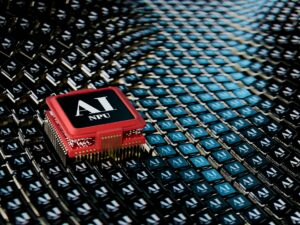Enhancing Online Security for Regular Users by Using Artificial Intelligence

Enhancing Online Security for Regular Users by Using Artificial Intelligence
In the current digital era, internet security has become a matter of utmost importance for people, organizations, and governments throughout the world. The complexity of cyber threats is increasing, and they now include a wide range of assaults, from malware and phishing schemes to ransomware and identity theft. At this point in time, it is no longer adequate to rely just on traditional security measures. The protection of daily users is increasingly being ensured by artificial intelligence (AI) via the detection of threats, the prevention of breaches, and the enhancement of overall online security. As a result, AI is playing an increasingly important role in the protection of everyday users.
1. Comprehending Artificial Intelligence in Cybersecurity
In the context of cybersecurity, artificial intelligence (AI) is defined as the use of predictive analytics, deep learning, and machine learning to discover, react to, and prevent cyber risks from occurring. Artificial intelligence (AI) systems are able to learn from patterns, adapt to new threats, and make judgments in real time in order to safeguard users, which is different from conventional security systems that depend on predetermined rules.
2. Identification of Malware and Attacks Involving Phishing
Artificial intelligence (AI) is able to analyze massive quantities of data and recognize any activity that is out of the ordinary, which allows it to excel in discovering malware and phishing efforts. Models that use machine learning are capable of identifying trends in emails, online pages, or downloads that are indicative of harmful intent. For instance, artificial intelligence (AI) has the ability to identify suspicious connections, recognize websites that are not genuine, and stop people from unintentionally distributing critical information.
3. Surveillance of Threats in Real Time
Security systems that are driven by artificial intelligence (AI) always keep a close eye on network traffic, user activity, and the way devices are behaving. Artificial intelligence (AI) is able to identify abnormalities that might be indicative of a breach, such as illegal access or attempts to log in that are out of the ordinary, thanks to its real-time analysis. Artificial intelligence helps prevent assaults before they inflict substantial harm by warning users as soon as they occur.
4. Safeguarding Personal Information
Every day, individuals keep a massive quantity of personal information online, ranging from banking data to social networking profiles. Artificial intelligence (AI) improves data security by detecting flaws, encrypting critical information, and monitoring for data breaches. In addition, artificial intelligence algorithms have the ability to identify patterns of data abuse, which allows them to warn users of possible breaches or instances of illegal access.
5. Reinforcing Password and Authentication Systems
It is a typical practice for hackers to get access to a system via the use of weak passwords. Through the use of methods such as behavioral biometrics and adaptive multi-factor authentication (MFA), artificial intelligence (AI) is able to improve authentication systems. Artificial intelligence is able to identify people with more precision, as well as lessen the need on passwords as the only means of verification, by studying typing patterns, how people use their devices, and login activity.
6. Forecasting Threats That Are Likely to Appear
Artificial intelligence can foresee cyberthreats before they happen because of its predictive powers. Artificial intelligence (AI) models are capable of detecting likely vulnerabilities and proactively recommending security remedies by assessing both past attack data and global threat patterns. This predictive strategy is beneficial to both individuals and enterprises, as it allows them to maintain a competitive edge against hackers.
7. Responses to Security Incidents That Are Automated
In the event that a threat is discovered, artificial intelligence is capable of responding automatically in order to lessen the danger. For example, it has the ability to isolate infected devices, prevent suspicious traffic, or quarantine dangerous data. Responses that are generated automatically decrease the amount of time it takes to respond, lessen the extent of the harm, and provide a greater degree of protection than human intervention on its own.
8. Educating Users and Decreasing the Number of Errors Made by Humans
In the field of cybersecurity, human error continues to be one of the most vulnerable points. Artificial intelligence (AI)-based systems have the ability to teach users by identifying harmful behavior, recommending safer options, and offering assistance in real time. For example, artificial intelligence (AI) is able to detect whether a password is vulnerable, identify emails that are likely to be phishing scams, and prohibit downloads that are risky, which contributes to the development of safer online behavior.
9. Using Artificial Intelligence to Detect Fraud
Transactions that are conducted online are more susceptible to fraudulent activity. Artificial intelligence systems are able to evaluate trends in financial transactions, identify abnormalities, and flag questionable behaviors while they are happening. In order to safeguard customers from fraud and unlawful transactions, this technology is often employed in banking applications, e-commerce platforms, and payment gateways.
10. Difficulties and Ethical Considerations
Artificial intelligence (AI) in online security is confronted with a number of obstacles, in spite of the advantages that it brings. Artificial intelligence (AI) vulnerabilities may be exploited by cybercriminals, or they can create assaults that are driven by AI. The vast quantities of user information that are necessary for the training of artificial intelligence models raise issues about privacy. It is essential to ensure that AI systems are transparent, fair, and secure in order to keep the confidence of users.
11. The Future of Artificial Intelligence in Internet Security
Artificial intelligence will become an increasingly essential component of internet security as cyber threats continue to advance. It is possible that future systems may provide security suggestions that are tailored to the user, threat detection that is completely autonomous, and protection that is seamless across all devices. Commonly used technologies that combine artificial intelligence with human supervision may provide those who use them on a regular basis with a digital experience that is more secure and safe.
Through the provision of intelligent, proactive, and real-time protection, artificial intelligence is revolutionizing internet security for the average user. Artificial intelligence (AI) gives users the ability to traverse the digital world securely, from the detection of phishing attempts and malware to the protection of personal information and the prevention of fraud. As technology continues to improve, artificial intelligence-driven security solutions will continue to grow as well. This will make interactions that take place over the internet both more safe and more convenient, as well as more resistant to future dangers.




